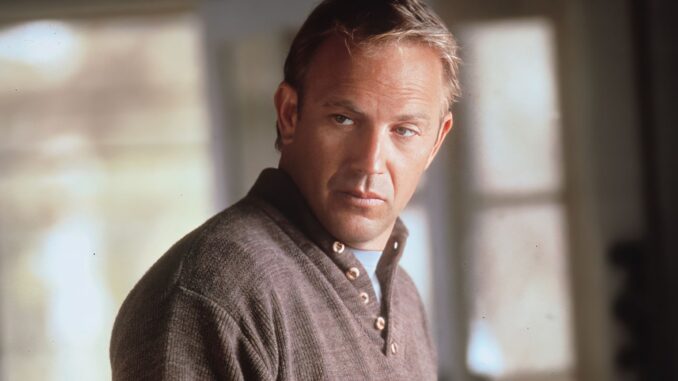
The Dust of Fame: Kevin Costner, Allegations, and the Shifting Sands of Public Perception
The name Kevin Costner conjures images of windswept plains, stoic heroes, and sweeping cinematic landscapes. He is the architect of modern Westerns, a figure etched in the American cultural consciousness through films like "Dances with Wolves," "The Untouchables," and "Field of Dreams." But what happens when the gilded image cracks, when the iconic figure finds himself embroiled in the grimy reality of allegations and lawsuits? The recent news of Costner facing a lawsuit alleging sexual harassment is a stark reminder that fame, like the dust of the plains, can be easily stirred, obscuring the truth and leaving a residue of doubt and speculation.
The lawsuit, filed by [mention specifics about the plaintiff and their role], paints a jarringly different picture from the wholesome, family-oriented image Costner has cultivated throughout his career. The accusations, ranging from [summarize the allegations briefly without sensationalizing], immediately ignite a complex web of reactions. Initial responses often involve disbelief, a protective instinct to shield a beloved figure from potentially damaging claims. This knee-jerk reaction speaks to the power of established narratives and the tendency to cling to familiar, comforting images. We struggle to reconcile the hero on screen with the alleged perpetrator in the courtroom.
However, the gravity of sexual harassment allegations demands a more nuanced approach. In the wake of the #MeToo movement, the world is acutely aware of the power dynamics at play in professional settings and the insidious ways in which abuse can be masked. While it is crucial to remember the presumption of innocence, it is equally vital to acknowledge the prevalence of such misconduct and the courage it takes for individuals to come forward. The accusations against Costner, regardless of their veracity in the eyes of the law, inevitably force a re-evaluation of his public persona.
The media plays a crucial role in shaping public perception during such controversies. News outlets, driven by the demands of a 24/7 news cycle, often focus on sensationalism and immediate reactions. Headlines scream accusations, amplifying the shock and disbelief while potentially prejudicing the public's judgment. The pressure to be the first to break the story can sometimes overshadow the need for responsible reporting, leaving the audience struggling to sift through the noise and form an informed opinion. The challenge lies in balancing the public's right to know with the individual's right to a fair hearing.
Beyond the immediate legal implications, the allegations against Costner have broader societal consequences. They contribute to an ongoing dialogue about power, consent, and the responsibility that comes with fame. The fact that such allegations are being taken seriously and investigated, even against a figure as established as Costner, signifies a positive shift towards accountability and a greater willingness to challenge established norms. This is not to say that all accusations are valid, but rather that all accusations deserve to be treated with respect and investigated thoroughly.
Ultimately, the resolution of this lawsuit will determine Costner's legal fate. However, the impact on his reputation and the public's perception of him may be irreversible. The dust of these allegations, regardless of how it settles, will forever cling to his legacy, adding a layer of complexity to the narratives we associate with his name. This case serves as a potent reminder that fame is a fragile construct, built on perception and vulnerable to the realities of human fallibility. It compels us to question our own biases, to examine the power structures that enable abuse, and to demand accountability, even from those who have long held a privileged position in the cultural landscape. The courtroom will determine the truth, but the court of public opinion will continue to grapple with the complexities of guilt, innocence, and the enduring power of perception in the age of celebrity.
